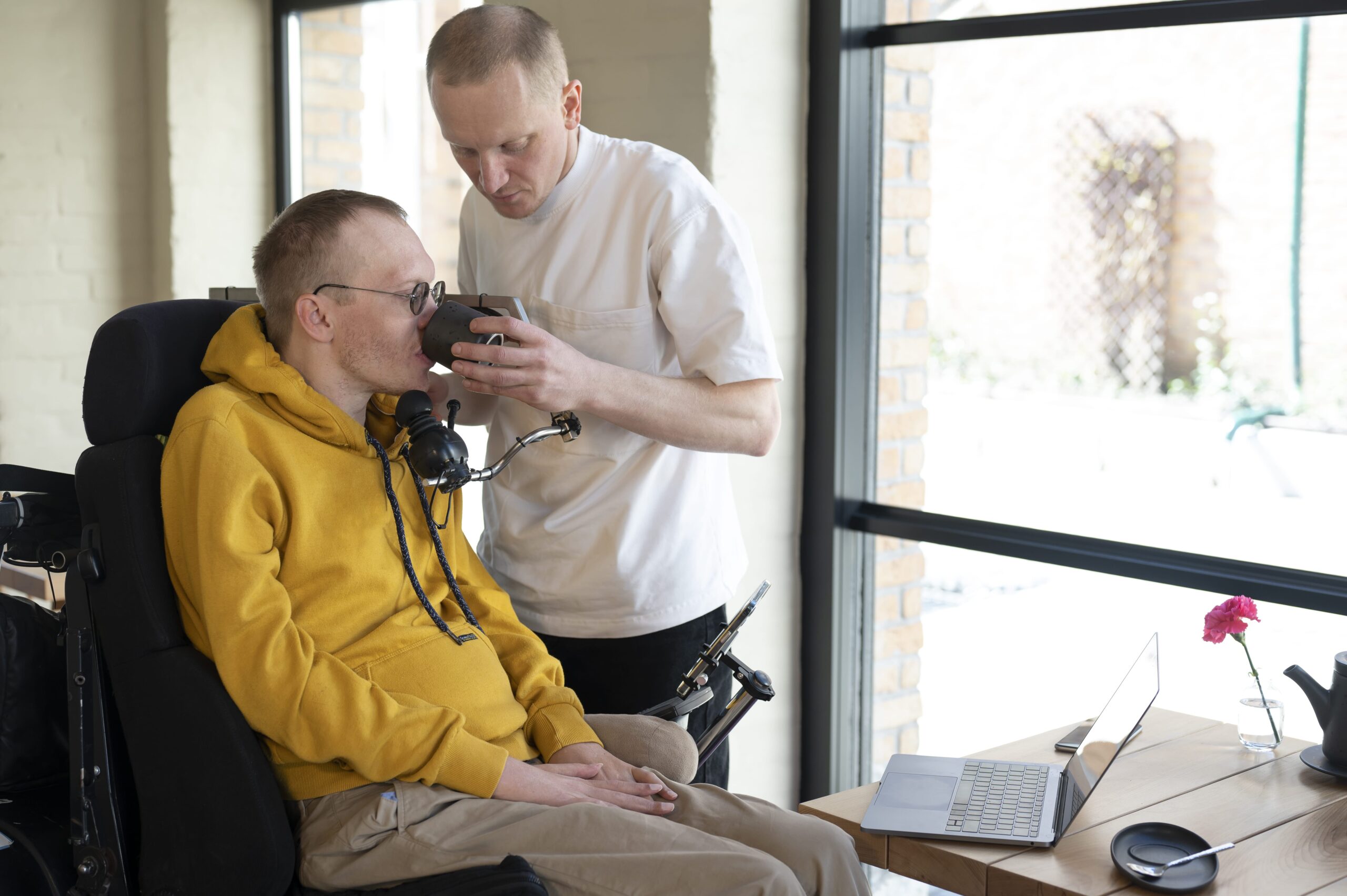Have you ever wondered what happens after the hospital stay ends, but before you’re truly ready to manage on your own? For many older Australians, that “in-between” stage can be the most uncertain and overwhelming part of recovery. Going straight home without enough support may risk setbacks, while staying in the hospital longer than necessary can feel both unnecessary and stressful.
That’s where transitional care steps in. Designed as a short-term, goal-oriented program, it bridges the gap between hospital and home, helping older patients regain confidence, independence, and well-being in a safe and supportive environment. Whether delivered at home or in a residential care setting, transitional care focuses on restorative health, with the right mix of nursing, therapy, and personal support so you or your loved one can return to daily life with greater strength and peace of mind.
What Is Transitional Care?
Transitional care provides short-term care for older people to help them recover after a hospital stay, offering specialised support for up to 12 weeks. This goal-oriented approach focuses on helping you regain functional independence in a comfortable, non-hospital setting, whether at home or in a residential care facility.
The program operates in accordance with Australian Government guidelines and encompasses nursing, physiotherapy, occupational therapy, personal care, and social work services. The focus is restorative, helping you recover and rebuild skills so you can return to daily life without relying on long-term care.
Who Needs Transitional Care?
The transition care service is ideal for seniors who’ve experienced recent health events that have temporarily affected their ability to live independently. Common situations include:
Medical conditions that often benefit:
- Recent surgery or major medical procedures
- Falls resulting in injury or loss of confidence
- Stroke or heart conditions requiring rehabilitation
- Respiratory illnesses or infections
- Complex medication changes
- Deconditioning from extended hospital stays
Signs your family might notice:
- Reduced mobility or balance concerns
- Loss of confidence in daily activities
- New equipment needs (walking aids, shower chairs)
- Difficulty managing medications safely
- Increased carer stress or family concerns
- Worry about living alone after the hospital
Eligibility is determined through a complete aged care assessment, now part of the Australian Government’s Single Assessment System.
Unsure if you or your loved one is eligible for transitional care? Contact our experienced team or My Aged Care today to discuss your situation, understand the requirements, and begin the assessment process with confidence.
How Transitional Care Helps
The benefits of transitional care extend far beyond basic recovery support. This specialised approach delivers measurable improvements in health outcomes and quality of life.
Clinical benefits include:
- Reduced risk of hospital readmission
- Safer medication management during recovery
- Continuity of therapy and rehabilitation
- Early identification of potential complications
- Improved healing outcomes
Practical advantages:
- Relief for family carers during intensive recovery periods
- Professional guidance on home safety modifications
- Coordination with GPs and specialists
- Equipment assessment and provision
- Confidence-building through gradual independence
The treating team aims to enhance your independence and support your goals to live safely at home. This restorative approach means working toward specific, measurable goals within a time-bound framework, typically lasting 8-12 weeks.
The program’s success lies in its intensive but temporary nature. Rather than creating long-term dependency, transitional care provides the concentrated support needed to maximise your recovery potential during the critical post-hospital period.
What’s Included in Transitional Care
Transitional care services are comprehensive and tailored to individual recovery needs:
Nursing Services:
- Regular health monitoring and assessment
- Wound care and dressing changes
- Medication management and education
- Symptom monitoring and early intervention
Allied Health Support:
- Physiotherapy for strength and mobility
- Occupational therapy for daily living skills
- Speech therapy if communication or swallowing is affected
- Dietetic support for optimal nutrition during recovery
Personal Care Assistance:
- Help with bathing, dressing, and grooming
- Meal preparation and nutrition support
- Light housekeeping and safety maintenance
- Transportation to medical appointments
Care Coordination:
- Regular communication with your GP and specialists
- Equipment supply and home modification advice
- Transition planning for ongoing support needs
- Family education and carer support
Your Fairfield Transition Care Pathway
Understanding the process helps reduce anxiety and ensures smooth coordination between hospital and home:
Step 1: Hospital Referral: Your treating team identifies the need for transitional care and initiates the referral process while you’re still in the hospital.
Step 2: Assessment and Eligibility: An Aged Care Assessment Team evaluates your needs and confirms eligibility for the Transition Care Programme or NSW Health’s Transitional Aged Care Program (TACP).
Step 3: Care Planning: A personalised care plan is created in consultation with you, supporting your decision-making and advocating for your specific needs.
Step 4: Service Commencement: Care begins in your Fairfield home or surrounding areas (Canley Vale, Cabramatta, Smithfield, Guildford, Liverpool) within 48-72 hours of discharge.
Step 5: Regular Review and Transition: Progress is monitored weekly with regular reviews. As you improve, services are gradually reduced, and transition plans for ongoing support (such as Home Care Packages or Community Home Support Programme) are established if needed.
South Western Sydney Local Health District (SWSLHD) coordinates closely with care community providers to ensure seamless transitions and prevent service gaps.
Ready to begin your personalised transitional care plan? Contact WiseChoice today to have services commenced within 48-72 hours, so you can start your recovery journey with immediate, compassionate support from our Fairfield team.
Funding and Eligibility
The Australian Government’s Transition Care Programme provides short-term care for up to 12 weeks to help older people recover after a hospital stay. This funding means most services are provided at no cost to eligible participants.
Key eligibility factors include:
- Being aged 65 or older (50+ for Aboriginal and Torres Strait Islander people)
- Having been an inpatient in a public or private hospital
- Requiring additional support to complete recovery at home
- Having the potential to benefit from restorative care
NSW Health also provides complementary funding for the program, with services typically lasting 9-12 weeks.
The program interfaces with My Aged Care’s broader system, and some participants may transition to ongoing Home Care Packages after completing their transitional care period.
Important: Eligibility and availability can vary based on current demand and individual circumstances. Contact My Aged Care on 1800 200 422 or speak with your hospital discharge team for current details specific to your situation.
Why Choose WiseChoice for Transitional Care in Fairfield
Our team understands the unique needs of Fairfield’s communities and works closely with local GPs, specialists, and community services to ensure comprehensive, culturally appropriate care. Our Fairfield Advantage:
- Rapid Response: Care commences within 48 hours of hospital discharge
- Cultural Sensitivity: Staff trained in culturally appropriate care for Fairfield’s diverse communities
- Language Support: We speak Vietnamese, Chinese, Arabic, etc., and other commonly spoken languages in the Fairfield community, and we can coordinate professional interpreters as per your care needs.
- Weekend Availability: Seven-day service ensuring continuity of care
- Hospital Liaison: Direct relationships with SWSLHD discharge teams for seamless transitions
- Allied Health Network: Established partnerships with local physiotherapists, occupational therapists, and specialists
- Transparent Communication: Regular family updates and clear progression reporting
What to Expect: Our 48-Hour Post-Discharge Plan
Day 0-2: Immediate Stabilisation
- Comprehensive nursing assessment within 24 hours
- Medication reconciliation and safety review
- Home safety evaluation by an occupational therapist
- Initial goal setting and care plan development
Week 1-2: Intensive Support Phase
- Daily or alternate-day nursing visits as required
- Physiotherapy sessions 2-3 times per week
- Coordination with GP for follow-up appointments
- Family education on care techniques and warning signs
Week 3-6: Active Recovery Phase
- Regular therapy sessions focusing on strength and function
- Graduated independence in daily activities
- Weekly progress reviews with the care team
- Equipment or home modification recommendations implemented
Week 7-12: Transition Preparation
- Reduced service intensity as independence improves
- Transition planning for ongoing support needs
- Connection with long-term care services if required
- Final assessment and safe discharge from the program
Summing Up!
Recovery doesn’t have to be overwhelming. Whether you’re planning discharge from Liverpool Hospital, Fairfield Hospital, or any facility in South Western Sydney, professional transitional care can transform your journey home into a confident, supported experience.
At WiseChoice, we understand that every day matters during recovery. That’s why our Fairfield-based team is ready to begin your personalised care plan within 48 hours of your call. No waiting lists, no bureaucratic delays, just immediate, compassionate support when you need it most. Contact Wise Choice today to speak with our friendly team and access the right transitional care support when you need it most.



